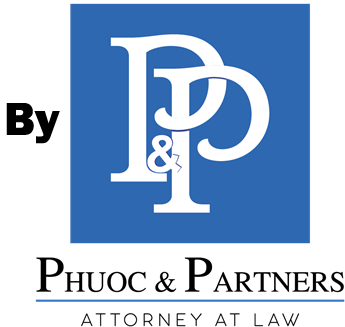
DIFFICULTIES AND CHALLENGES IN DEBT COLLECTION IN VIETNAM
Debt collection is a complex and challenging process for enterprises in Vietnam, especially in the context of a downturn economy. Accordingly, many enterprises face difficulties or even become insolvency, causing creditors to encounter numerous obstacles in recovering debts. This article will analyse. The difficulties and challenges of debt collection in Vietnam, thereby proposing feasible solutions to make it easier for enterprises to collect debts.
General difficulties and challenges in debt collection
The debtor fails to comply with its obligations in debt payment
One of the biggest challenges that enterprises face in the debt collection process is debtors not fulfilling their obligations to pay debts. Some debtors have an uncooperative attitude, or intentionally delay or avoid responsibilities. This non-cooperation is shown in various forms, from not responding to calls and letters of demand on payment to avoiding face-to-face meetings. In addition, some debtors deliberately evade their responsibilities by changing their addresses, phone numbers, or even suspending their business.

Related Articles: LEGAL ASPECTS OF DEBT COLLECTION IN VIETNAM
Lack of documents and evidence to prove the debt
Collecting enough documents and evidence to prove that the debt is legitimate and that the creditor has a legal basis to demand payment is a crucial task in the debt collection process, but it is not always straightforward. This arises from various reasons, such as: parties conducting transactions without signing contracts or not keeping sufficient related documents; enterprises not establishing a sales and service process systematically; enterprises not managing or tracking transactions through keeping readable and valid records in accordance with laws; debtors refusing to cooperate in confirming debts or providing related documents…
The above limitations lead to difficulties for creditors when working with debtors, relevant third parties and judicial authorities (courts/arbitrators) when creditors initiate lawsuits to recover debts. If creditors have lack of evidence to support their claim, they face risks such as prolonged legal proceeding to gather related documents and evidence or the court/arbitration may render unfavorable rulings or even reject the creditors’ claims.
In addition, debtors often tend to exploit weaknesses in the management of creditors’ documents to evade responsibility, deny debts, request a review of the evidence, or even make counterclaims if errors in contracts or documents are discovered. This not only complicates the debt collection process but also leads to prolonged legal disputes, causing fatigue and losses for enterprises.
Legal and regulatory barriers
Complicated and lengthy legal procedures: Normally, the process of settling a case must go through many procedural stages, from the examination of the handover, access, disclosure of evidence and mediation, working sessions, first-instance court hearings to appellate court hearings (if any). Each of these stages requires enterprises to spend time and personnel to prepare and participate. The prolongation of the litigation process can increase legal and financial costs for enterprises, and also affect business operations.
Limitations in judgment enforcement: Even if the court has ruled in favor of creditors, judgment enforcement still faces many difficulties. The judgment enforcement agency may have lack manpower or insufficient resources to seise the debtor’s assets.

Related Articles: DEBT COLLECTION LAWS OF VIETNAM
Effective debt collection measures and techniques
Debt collection involves not only ensuring timely payments but also implementing strategies and techniques to minimise risks and optimise the recovery process. From establishing clear credit policies to applying modern technology, effective debt collection measures can enhance a enterprise’s ability to recover debts, improve customer relations, and protect long-term financial interests. To overcome these challenges, enterprises can apply appropriate measures and techniques as follows:
- Negotiation techniques: Negotiation is an important skill in the debt collection process. Establishing an effective negotiation can help reduce tensions and find a solution that works for both parties. At the same time, this is also considered the optimal option, helping to save time and costs for enterprises.
- Seeking support from lawyers and legal experts: Lawyers and legal experts can provide the necessary legal advice and support, helping enterprises understand their rights and make the right decisions during the debt collection process. In addition, lawyers can participate in the negotiation process with debtors, offer appropriate legal solutions and protect the interests of the creditors. In case of necessity, lawyers can represent enterprises or individuals in court, defend their rights and make convincing legal arguments.
- Regular and persistent communication: Regular communication with the debtor to remind them of the debt and request payment. Persistence and constant reminders can help debtors become aware of their responsibilities and make payments.
- Gentle yet firm approach: During the debtcollection process, it is necessary to adopt a gentle, polite but resolute approach. This helps to maintain a good relationship with the debtor and increase the possibility of debt collection.
- Flexible payment solutions: To support debtors in making payments, flexible payment solutions can be offered such as splitting the debt into several installments, reducing interest rates, or extending the payment period. These solutions can make it easier for debtors to fulfill their financial obligations.
- Debt management technology and software: Using technology and debt management software helps to track and manage debts effectively. The technology helps automate the process of reminders, tracking payments, and providing detailed reports on debt status.
Throughout the journey of legal activities over the past 20 years, Phuoc and Associates have constantly affirmed their position as reliable and reputable legal consultants. With a team of experienced legal experts, we are proud to be one of the pioneers in providing debt collection services for domestic and foreign multinational enterprises and corporations.
The above is an overview of The difficulties and challenges in debt collection in Vietnam. If you have difficulties in finding a Law Firm to advise and support in the relevant legal field, please contact us. Phuoc & Partners is a professional consulting firm established in Vietnam and currently has nearly 100 members working in three offices in Ho Chi Minh City, Hanoi and Danang. Phuoc & Partners is also rated as one of the leading consulting firms specialising in business law in Vietnam that has leading practice areas in the legal market such as Labor and Employment, Taxation, Merger and acquisition, Litigation. We are confident in providing clients with optimal and effective service.

